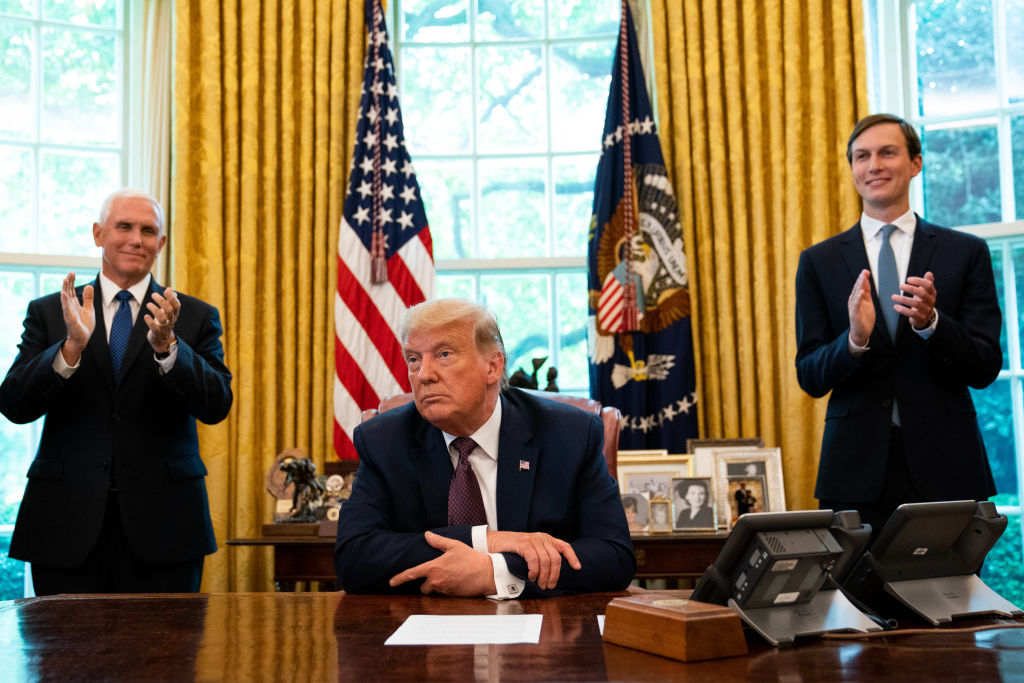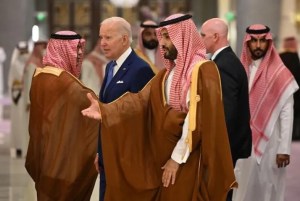On September 15, representatives from the oil-rich Kingdom of Bahrain will meet Israeli leaders at the White House to sign a historic peace deal. It will normalize relations between the Muslim state and the Jewish one, not long after the United Arab Emirates concluded a similar pact. Expect more such ‘normalization deals’. They supplement other White House initiatives, such as the deal it brokered between Serbia and Kosovo, which includes both countries establishing closer relations with Israel.
The deals are significant for several reasons. First, they represent a common regional front against the Iranian threat, which has been developing beneath the surface for some time. Their public expression sends a stronger signal to Iran and opens the door to greater cooperation between Arab states and Israel, the region’s most developed economy and the leader in advanced military technology.
These deals also signal that Arab-Muslim regimes are less concerned with domestic, Islamist opposition to their outreach to Israel. Equally important, they show that the Palestinian Authority no longer holds a veto over fellow Muslims’ relations with Israel. We saw another sign of Palestinian weakness last week when the Arab League refused to condemn the UAE for its accord with Israel.
What changed to prompt these deals? The answer is not a greater threat from Iran. The danger from the mullahs is no higher now than it was in 2005, 2010, or 2015. Iran’s Sunni neighbors and Israel have all been threatened by Tehran’s expansionism, aggressive religious ideology, and support for terrorist movements for years. Yet, until recently, Israel was the only country seeking normalization with its Arab neighbors. What finally convinced the Arab states to come to the table was actually a shift in US policy.
President Trump’s foreign policy is significantly different from that of his predecessors. Unlike George W. Bush, who fought a land war in Iraq post 9/11 and deployed thousands of troops throughout the region, Trump is pulling back. He is instead emphasizing the geopolitical threat from China while withdrawing troops from the Middle East, including both Syria and Iraq, where Iran is a major presence.
Second, unlike Barack Obama, Trump is not seeking a ‘more balanced’, friendly relationship with Iran and a less supportive one with Saudi Arabia and Israel. Trump is vocally opposed to Iran’s mullahs. He is determined to isolate them diplomatically, punish them economically, and block them strategically. His policy to prevent them from building a nuclear weapon is not a joint agreement, like the one signed by the Obama administration and its European partners, but military deterrence and covert attacks on Iran’s nuclear program. Trump is openly supportive of both Israel and Saudi Arabia. He was willing to move the US embassy to Jerusalem despite opposition from the Arabists in the State Department, the Democratic party, the vast majority of foreign-policy experts from Boston to Washington, as well as and nearly all of Europe. They predicted huge pushback across the Muslim world. They were wrong. Trump was right.
Likewise, the transatlantic establishment of foreign-policy experts and human-rights activists pushed hard for Trump to condemn Saudi Arabia’s de facto leader, Mohammad bin Salman, for his role in assassinating political critic, Jamal Khashoggi. Trump refused. He issued only ambiguous statements, which were condemned as yet another case of his noxious friendship with brutal dictators.
Noxious or not, his policy had a larger strategic purpose, one that is bearing fruit in recent agreements. Trump was backing the Saudi regime, brutal as it was, because he cared more about their political stability and partnership against the Iran regime than about their deadly assaults on human rights. He may also have remembered that human rights interventions can entangle the US, as they did in Somalia, or lead to chaos and catastrophe, as they did in Libya. In any case, Trump effectively brushed off the killing of Khashoggi and continued to support the Saudi regime, which remained close to Washington, kept pumping oil, and bought more arms to cope with Iran.
[special_offer]


















